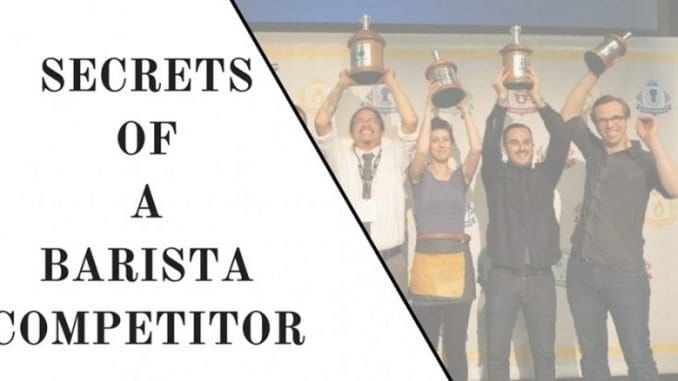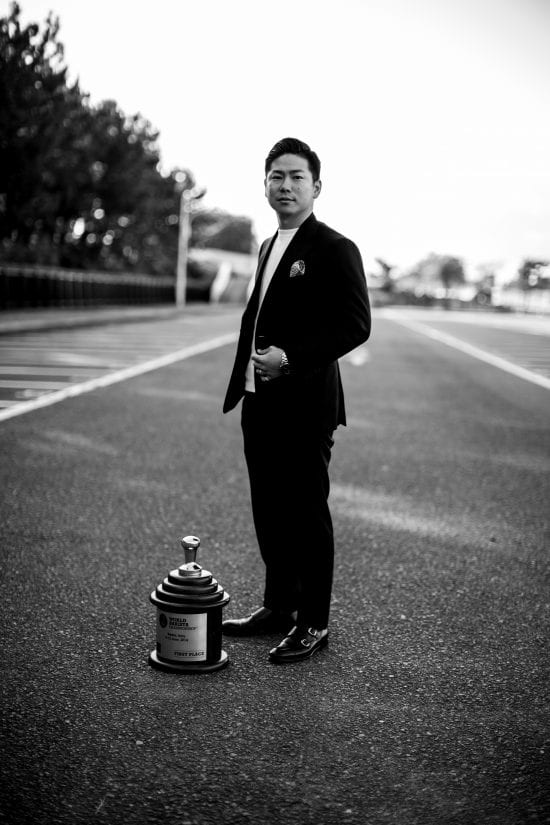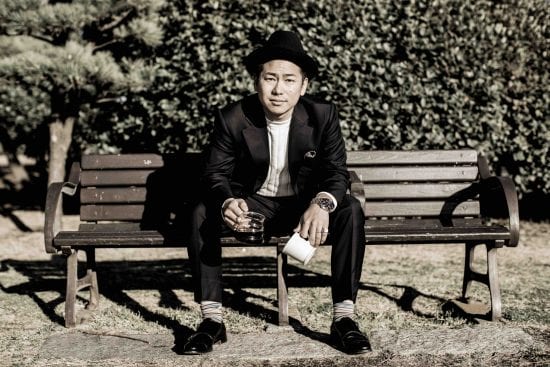
In this series, we share the secrets of barista competitors. From choosing a theme to setting a practice schedule, seasoned competitors open up about how to compete smartly, efficiently, and effectively.
BY ASHLEY RODRIGUEZ
BARISTA MAGAZINE ONLINE
Some people compete. Some people win. And some people help others succeed. Hidenori Izaki, the 2014 World Barista Champion, can claim all of the above, along with a long list of accolades. In addition to being the first World Barista Champion from an Asian country, he is also the founder and owner of coffee consulting company Samurai Coffee Experience, with which he travels the world providing education and guidance for all sorts of coffee businesses.
If you watched the 2016 movie, The Coffeeman, Hidenori (or Hide) is featured prominently in Sasa Sestic’s 2015 WBC win. He helps Sasa get ready for the world stage, both through encouragement and tough, real talk. He’s direct and honest, and sometimes his words can sting—but you know he’s right. If you’re thinking about coaching or looking for a coach, Hide has some tips to consider when coaching a barista competitor.

- Always ask why
Coaching is not a prescribed set of actions or techniques. For Hide, each competitor’s personality and goals dictate what sort of approach they’ll need to be successful—and it’s your job to figure that out. “I believe the work of a coach is to make the competitor realize how unique you are,” Hide shares. “Each one of us are very unique, and there’s no one who has same mentality. When competitors try to be someone they’re not, they tend to lose their personality.” Seeing one’s uniqueness isn’t always easy, and it can be especially tricky when you’re working with a coach who, like Hide, was successful in the past. In that situation, your natural inclination can be to try to do the same as they did. “That often comes from a fear of expressing themselves,” shares Hide.
So how do you individualize your approach? Ask competitors why they choose to compete. “Seeking out reasons provides competitors a clear idea and the confidence to be themselves,” says Hide.“Being a coach is like being a treasure hunter who maximizes their strengths and lets them be unique on the stage. Asking why will always lead to the right direction.”
- Build your coaching skills and expertise
To be a good coach, you have to know what you’re talking about. You can say a competitor’s performance is good, but if you don’t have any understanding of what the score sheets evaluate or what moves sit well with judges, your advice doesn’t matter. As a coach, that might be your single greatest contribution. “I think it’s important for a coach to provide an objective point of view of competitions, as competitors tend to be very subjective,” says Hide. So do your research. “For example, analyze the national championships … it gives you a clear idea of what sort of trends are dominating the national competition,” shares Hide.

- Wear a lot of hats
As a coach, your job is to build someone else up. You’re never going to be the recipient of whatever award or goal you’re working to achieve—instead, you’re working to make someone else’s goal a reality. “Our work is to help competitors be more successful and make their dream come true,” says Hide. With that in mind, you’ll often find yourself switching from a cheerleader role where you’re giving kind words of encouragement to a strict teacher, asking questions that force your competitor to think about themselves in ways they may not be prepared for. “Yes, sometimes you become hated as you need to say something strict to competitors,” says Hide.“However, these attitudes are essential when you really think about what someone needs and you are really serious about them.” To coach is to push someone to be better, and that’s not always easy.
Regardless of whether you have to switch from ‘encouraging coach’ one day to ‘mean coach’ the next, what matters most is being reliable. Sometimes, all a competitor needs is a familiar face. “My past trainees have told me me coaching is all about walking together with the competitor, even if you find success or failure,” says Hide. “Coaching for me is to know that when they fail it’s your fault, but when they’re successful their success is all theirs.” Sounds unfair, but the reward of seeing someone else win can be even more meaningful than if it had happened to you. “It’s a tough life but it’s one of the most amazing experiences when you see someone achieve success and build up an eternal relationship!” Hide shares.


Well writ. Coaching is a great reward.